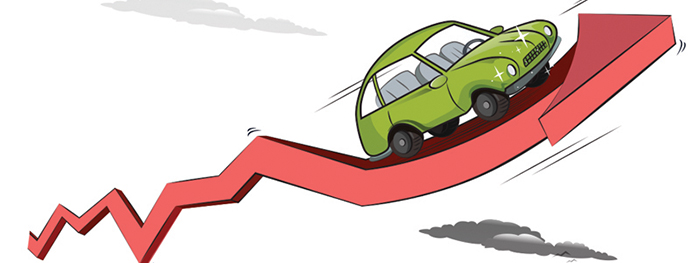Can You Put the Brakes on Rising Auto Insurance Premiums?
When your auto insurance policy renews, chances are that your premium will be going up, possibly by a lot. Rates vary by state and location, but nationwide, premiums increased more than 18% between July 2023 and July 2024.1

Higher vehicle prices and repair costs (including parts and labor), more accidents, a rising number of fraud cases and lawsuits, and severe weather events have affected the bottom line of insurers, leading to across-the-board rate hikes. That’s not good news for your wallet, but there are still steps you can take to help make your premiums more affordable.
Review your coverage. A good time to review your auto policy is before it renews, but you can make coverage changes or shop for new insurance at any point. Auto insurance rates vary greatly from company to company, so shop around. While price is important, you’ll also want to select a financially sound company that offers great customer service. If you’re happy with your current insurer, call the company or your agent to explore additional ways to save money.
Try to avoid downgrading to the minimum coverage required by your state. That could leave you financially vulnerable if you have an accident. If your vehicle is leased or financed, you’ll likely be required to maintain a certain level of insurance.
Look into discounts. These vary by state and insurer but may include discounts for low annual mileage, insuring multiple vehicles or bundling policies with the same company, installing anti-theft or other safety devices, completing driver training courses, and having a safe driving record. Some insurers offer discounts for participating in a usage-based (telematics) program that uses driving statistics uploaded from an app or tracking device to adjust rates based on driving habits.
Raise your deductible. You may be able to save money by choosing the highest deductible you can afford. Your deductible is the dollar amount you agree to pay out of pocket if you have an accident that is your fault. According to the Insurance Information Institute, raising your deductible from $200 to $500 could save you 15% to 30% on collision and comprehensive coverages, while raising it to $1,000 could save you 40% or more.2
Get quotes when car shopping. Before deciding on a vehicle, find out how much it will cost to insure — certain makes and models will be more expensive. For example, premiums for electric vehicles may be substantially more than for gas-powered vehicles, in part because repair costs are higher. The vehicle’s value, age, safety record and features, and where it will be located may also affect your premium.